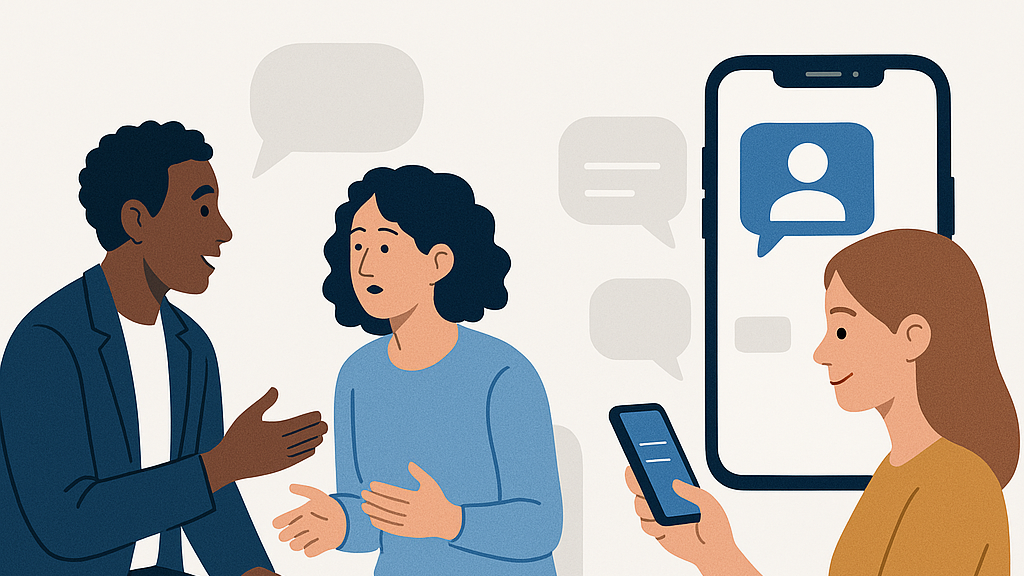
This is a question I have been reflecting on for some time, especially after experiencing both; being coached by one of the world’s most recognized human coaches on his AI-powered version.
That experience was eye-opening. It made me realize: the future is not some distant concept. It is already here.
It is only a matter of time before we all have a personalized, AI-driven coaching app; one that “knows us,” responds to our needs in real-time, and is available 24/7, 365 days a year.
But as an Executive Coach, this raises a few critical questions for me:
Let us explore this together.
In today’s fast-paced, complex world, people need more than just information; they crave clarity, connection, and a safe space to reflect.
This is particularly true for executives. They are expected to:
This is where coaching becomes essential.
Hypothesis #2: The Power of Humanized Coaching
Humanized coaching: when two or more humans engage deeply in a coaching conversation, whether in person or virtually, remains unparalleled in certain areas.
Why?
Because it is uniquely effective in navigating complexity.
Complexity is not just about many interacting parts; it is about unpredictability. It is about dynamics where:
These problems cannot be solved with formulas; they require perspective shifts, emotional insight, and nuanced questioning.
In my coaching sessions with executives, I often find that our conversations take unexpected turns. That is because I bring my coaching skills and experience in CEO and COO roles into the conversation. That combination often helps my clients unlock new thinking and actionable next steps.
And let us not forget the value of accountability. A human coach challenges and supports, tracking the client’s progress over time, and offering a personal connection that no AI can replicate (at least, not yet).
That said, AI coaching agents absolutely have a place in the future of coaching and even in the present.
AI is particularly well-suited to handling complicated problems, such as those with clearly defined inputs, stable patterns, and outcomes that can be optimized.
It can:
Imagine an executive facing a recurring business challenge. An AI agent, trained on thousands of similar cases, can quickly offer insights or frameworks that might take hours to research manually.
As AI becomes more refined, the emotional connection to AI responses will deepen too, particularly as it begins to pick up on tone, facial expression, and past patterns of interaction.
Coaching is more than problem-solving.
It is a relationship based on trust.
That is where humanized coaching holds an irreplaceable advantage. The coaching agreement between coach and client ensures confidentiality, creating a safe space for the client to bring up any topic; personal or professional.
And here is the key concern: no matter how advanced AI becomes, it will always be owned by a company, often in another jurisdiction. That raises valid concerns about data privacy and trust.
This is especially relevant for executive clients. Many are trained to be cautious about what they share, even internally. Being a CEO or senior executive can be lonely. Your words (and silences) are constantly interpreted by others and can influence organizational behavior.
That is why my clients often share their deepest ideas, convictions, and fears with me; because they trust that I will not only listen but also protect that space.
One of the most exciting shifts is how AI coaching democratizes access to and experience with coaching. With AI agents becoming increasingly available on mobile devices, more people can benefit from timely guidance anytime and anywhere.
As these tools get smarter, recognizing your words, tone, facial expressions, and behavioral patterns, they will become valuable companions for personal and professional growth.
But here’s the twist: The more we get used to coaching, the more we begin to recognize when we need something more. That “more” is often the human connection; especially when we face deeply personal or high-stakes challenges.
So where does this leave us?
In my view, the future is hybrid.
Human coaches will increasingly leverage AI tools during virtual sessions to:
At the same time, coaches may choose to differentiate by offering in-person, fully humanized coaching experiences, which stand in stark contrast to AI-led interactions.
This will particularly appeal to executive clients who value discretion, depth, and trust; attributes that are hard to replicate in digital environments governed by tech giants.
I believe they are not.
They are complementary.
AI coaching will thrive where there is a need for structure, data, repetition, and speed. When topics are complicated, and patterns are stable.
Humanized coaching will remain essential where:
Executives, in particular, will need both.
They will rely on AI for quick insights, and on human coaches for deeper transformation.
I hope this article has sparked some thoughts or emotions.
I would love to hear from you:
Let us continue this conversation because the future of coaching is not either/or.
It is both/and.
Whether you are a first-time or an experienced Private Equity CEO, consider how an Executive Coach could enhance your impact and contribute to your, your company, and your team successes. Let’s discuss how coaching can make a significant difference in your journey